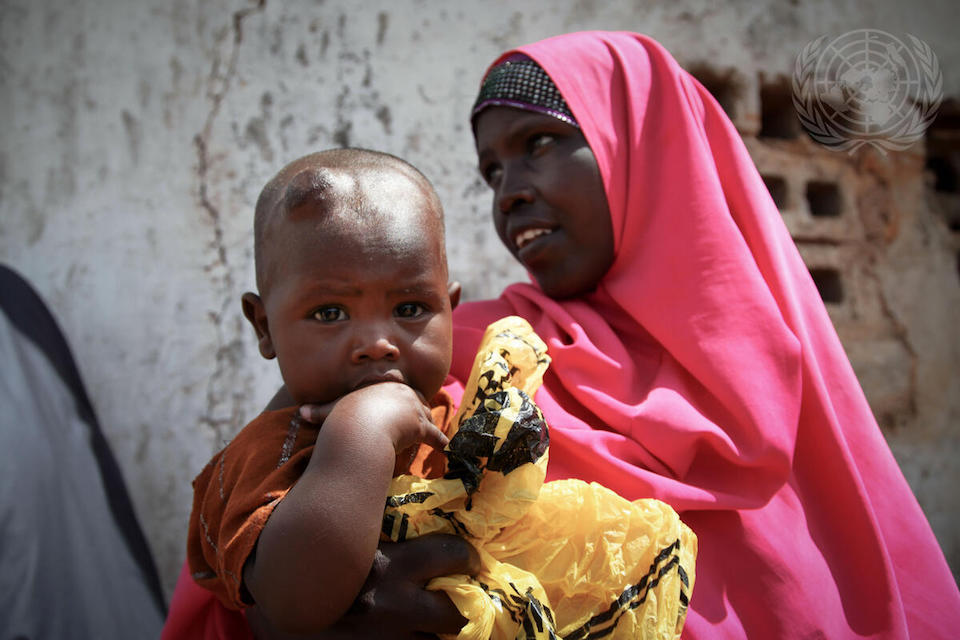Ensuring access to food and sexual and reproductive health services
UK closing statement at the 54th Session on the Commission on Population and Development

Thank you Chair, Excellencies,
I am honoured to join you today as we conclude the 54th Session on the Commission on Population and Development. Today, Member States agreed to adopt a timely, and much needed resolution. Not only has it been 5 years since the last outcome of the commission, but this resolution demonstrates that the international community can come together and prioritise taking action to protect women, adolescents, girls and marginalised populations.
We know that COVID-19 has had a profound impact on food security, the access to safe, nutritious and affordable food, and limited access to sexual and reproductive health services. Women and girls bare the brunt of this impact. While women produce 50% of the food worldwide, they account for 70% of the world’s hungry. There have been significant disruptions to essential sexual and reproductive health services including family planning, HIV testing and treatment, and safe abortions.
Therefore, we welcome the timely commitments in the resolution to: * Prevent and eliminate sexual and gender based violence * Ensure universal access to sexual and reproductive health and reproductive rights * Mitigate the impact of COVID-19 related school closures on girls, which puts them at greater risk of harmful practices such as early, child and forced marriage and female genital mutilation. * Stress the urgent need to build resilience to address the adverse impacts of climate change * Ensure access to social protection programmes for women * Close the gender gap in access to productive resources in agriculture, with a view to ensure equal access to property rights * Take a multisectoral approach to address the nutritional needs of pregnant and lactating women, women of a productive age, adolescents, infants and young children. * And, remove barriers to health facing youth and adolescents, including measures supporting the prevention of sexually transmitted diseases.
Importantly, the resolution reaffirms the critical role that UNFPA has in supporting member states to deliver upon the commitments made in this resolution and to ensure the full and effective implementation of the International Conference on Population and Development and the Beijing Declaration.
Member States have not only come together to agree to a resolution, but have worked toward tangible process on the realisation of sexual and reproductive health and rights, the development of more sustainable food systems, and improved nutrition.
We regret that the text does not include vital references to sexual rights and essential components such as comprehensive sexuality education. We lament that the text does not contain a stronger focus on the impact of food insecurity and COVID-19 on marginalised communities, and those facing multiple and intersecting forms of discrimination.
We know that COVID-19 is likely to exacerbate and reinforce the position of vulnerable and marginalised groups in society, including people living with HIV, LGBT+, sex workers, and refugees. These groups are facing increased risk of stigma, discrimination, sexual and gender based violence, loss of income and further restrictions to accessing essential supports and services. A survey conducted in nearly 140 countries on the impact of COVID-19 on LGBT communities found that 21% said their access to HIV treatment had been limited or complicated. The international community must come together to take timely action to prevent further marginalisation of these populations.
As we set out in our national statement delivered earlier this week, we hope the conversations here are carried forward throughout the remainder of the year during discussions at the Food Systems Summit and COP 26. We will champion inclusivity throughout our COP Presidency. We will use our position to amplify the voices and solutions of women, adolescents and girls and those most marginalised, empowering them as decision-makers, advocates and leaders.
We are immensely grateful to the work of the co-facilitators, Lebanon and Romania, UNFPA and DESA for the technical expertise, and the Chair, Burkina Faso for all their diligent work helping us reach this point. We look forward to reconvening next year as we discuss “Population and Sustainable Development, in particular sustained and inclusive economic growth.”